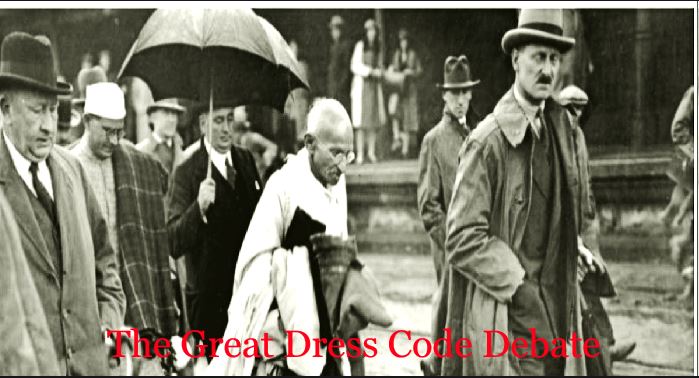Dress codes are the ultimate symbol of cultural, social, and even political identity. From the ‘Burkha’ to the dhoti, and from suits to T-shirts, what we wear can spark intense debates and hilarious moments, and even shape our perceptions of others.
Let’s start with the infamous Trump-Zelensky exchange. When Trump asked Zelensky why he wasn’t wearing a suit, Zelensky’s response was priceless: “No, I don’t have. I will wear it when my country wins the war.” Talk about making a fashion statement!
But, dress codes can also be a serious business. In some countries, wearing a ‘Burkha’ is compulsory, while in others, it’s a symbol of oppression. And then, there are the funny moments, like when a lady is being spotted wearing just a bra and panties in a country where modesty is paramount.
Some communities are taking dress codes to a whole new level. In a bizarre twist, some are making it compulsory to have long beards. We can only imagine the barbers’ dilemma -move to another country or start a new business.
Mahatma Gandhi’s visit to England is another classic example of how dress codes can spark controversy. When he showed up wearing only a dhoti, some British officers objected to meeting him. Who knew that a simple loincloth could cause such a stir?
So, how do we determine if someone is a true saint or a wise person based on their dress code? The answer is, we can’t. A person wearing a saffron robe may or may not be a saint, just as a person wearing a T-shirt may or may not be wise.
As it appears, dress codes are an outcome of the mind, shaped by cultural, social, and personal factors. What we wear can influence how we feel, how others perceive us, and even our behaviour.
In the workplace, dress codes can enhance credibility, command respect, and even boost productivity. But, they can also stifle creativity and individuality.
In schools, dress codes can reduce socioeconomic disparities and improve discipline, but they can also limit self-expression.
So, what’s the verdict on dress codes? Are they necessary, or are they just a form of social control? The answer lies somewhere in between.
Ultimately, dress codes reflect our complex, multifaceted society. Depending on the context, they can be both liberating and oppressive.
So, the next time you get dressed, remember that what you wear is not just a personal- choice, but also a statement about your values, culture, and identity. And who knows, you might start a fashion revolution!





